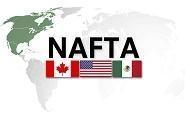Government/Policy

January 24, 2018
Auto Origin on the Table for NAFTA Talks
Written by Sandy Williams
NAFTA negotiations officially resumed on Sunday, Jan. 21, in Montreal and will continue through Monday, Jan. 29. Three days will be devoted to automotive rules of origin, one of the most contentious items on the agenda.
While arguments continue about automotive content in NAFTA discussions, Canada is ensuring its place in automotive global trade by joining 10 other countries in the “Comprehensive and Progressive Agreement for Trans-Pacific Partnership” (CPTPP).
In a government press release, Canada said: “To provide market access for Canadian auto exports to Japan, Canada reached an agreement on auto standards with Japan that brings into effect important commitments on automotive standards and regulations that Japan made to the U.S. and Canada in the original TPP, but which Canada lost when the U.S. withdrew from the TPP. Canada also secured a forward most favoured nation (MFN) clause on auto standards in a side agreement with Japan to capture future liberalization that Japan would make in this area. The CPTPP would ensure that treatment of Canadian autos are not disadvantaged compared to autos of other countries. Moreover, Canada concluded auto rules of origin side letters with Malaysia to allow Canadian autos to benefit from preferential tariff treatment without requiring changes to existing production or sourcing patterns.”
With both Mexico and Canada part of CPTTP, it could complicate the NAFTA discussions on automotive content.
CPTTP is much more liberal on automotive origin than Trump wants for NAFTA. CPTTP will allow 55 percent of a vehicle to originate outside of the trade pact before tariffs kick in. The U.S. wants to allow only 15 percent non-NAFTA origin.
Flavio Volpe, president of Canada’s Auto Parts Manufacturer’s Association, said the revamped TPP deal goes against what Canada’s No. 1 customer, the U.S., wants. “This could not be a dumber move at a more important time,” said Volpe in a Canadian Press report.
Defenders of CPTTP say it will give Canada leverage and shows that Canada is willing to look to other partners in trade than the United States.
Mexico’s chief negotiator Kenneth Smith says the TPP pact makes an important point. “It sends a signal that we can work together with Canada in the context of international trade negotiations.”
Canada has refuted U.S. criticism that it is not constructively engaged in NAFTA negotiations. Canada says it has put forward substantive proposals regarding every part of the NAFTA agreement. Stalling NAFTA negotiations are the “poison pills” presented by the U.S. on auto origin, dispute resolution and the sunset clause.
Mexico’s Finance Minister Jose Antonio Anaya expressed confidence in NAFTA, declining to discuss a Plan B in place should negotiations fail. “Let us work on plan A,” Anaya said. “Plan A is that NAFTA has been good for Mexico, good for the United States and good for Canada. That’s the way we see it, and we’re going to continue to work on a new version that is also good for all of us.”
Schedule Highlights
A bipartisan delegation from the U.S. House of Representatives will meet with negotiators on Jan. 28-29. Republican Rep. Mike Bishop (MI) said the group hopes to discuss the automotive industry and farming. Bishop told a Montreal radio show that it was important to get NAFTA done and that he will “hopefully be able to assist in the process of making sure we don’t just throw out the baby with the bathwater.”
Canadian Trade Minister Chrystia Freeland, Mexican counterpart Ildefonso Guajardo, and USTR Robert Lighthizer are expected to discuss NAFTA while attending the World Economic Forum this week in Davos, Switzerland. The three will be in Montreal on Monday to close the sixth round of negotiations.







